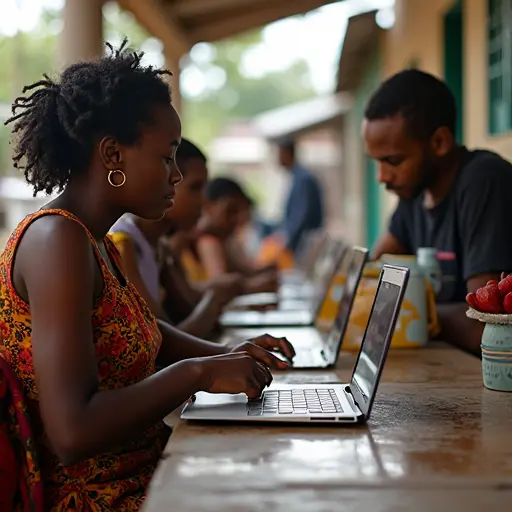Mobile crypto wallets are boosting financial inclusion in Africa by providing bankless populations access to digital assets, driven by high smartphone use, inflation, and lower remittance costs, despite challenges like connectivity and security.

Mobile Crypto Wallets Revolutionize Finance in Africa
In recent years, Africa has emerged as a hotbed for cryptocurrency adoption, with mobile-based crypto wallets playing a pivotal role in driving financial inclusion across the continent. Countries like Nigeria, Kenya, and South Africa are leading this charge, leveraging smartphones to provide unbanked populations access to digital assets and financial services. According to a Statista report, cryptocurrency usage in Africa grew by over 1,200% in 2023, highlighting the rapid uptake. Mobile wallets, such as those offered by platforms like Binance and local startups, allow users to buy, sell, and store cryptocurrencies directly from their phones, bypassing traditional banking infrastructure. 'Mobile crypto wallets are not just a trend; they are a lifeline for millions who lack access to banks,' says Adebayo Oke, a fintech expert based in Lagos. This shift is empowering individuals to participate in the global economy, send remittances at lower costs, and build savings securely.
Key Drivers of Adoption
Several factors are fueling the rise of mobile crypto wallets in Africa. High mobile penetration is a cornerstone; with over 500 million smartphone users in Sub-Saharan Africa, as per the GSMA Mobile Economy Report, devices are becoming the primary tool for financial transactions. Inflation and currency instability in nations like Nigeria and Zimbabwe have also pushed people towards cryptocurrencies as a store of value. For instance, in Zimbabwe, where hyperinflation has eroded the local currency, Bitcoin is increasingly used for everyday purchases. Remittances are another critical area; the World Bank notes that sub-Saharan Africa receives over $50 billion in remittances annually, and crypto wallets reduce transfer fees from an average of 9% to under 3%. 'Cryptocurrencies offer a cheaper and faster way to send money home, which is crucial for families relying on diaspora support,' explains Maria Kaman, a remittance analyst in Nairobi. Additionally, regulatory clarity is improving in some regions, with countries like South Africa implementing frameworks to support innovation while ensuring consumer protection.
Challenges and the Road Ahead
Despite the progress, challenges remain. Internet connectivity issues in rural areas can limit access, and volatility in crypto markets poses risks for new users. Security concerns, such as phishing attacks and wallet hacks, are also prevalent, necessitating education on safe practices. However, initiatives like blockchain-based identity systems are emerging to enhance security. Looking forward, the integration of decentralized finance (DeFi) protocols could further expand services, offering loans and insurance to the unbanked. 'The future lies in combining crypto with local needs, such as agricultural supply chain tracking,' notes John Mbatha, a blockchain developer in Kenya. As technology evolves, mobile crypto wallets are set to deepen financial inclusion, potentially transforming Africa's economic landscape by 2025.

 Nederlands
Nederlands
 English
English
 Deutsch
Deutsch
 Français
Français
 Español
Español
 Português
Português









